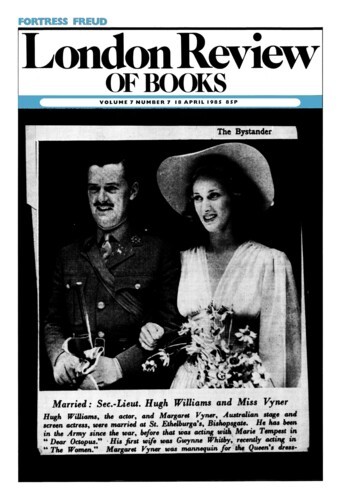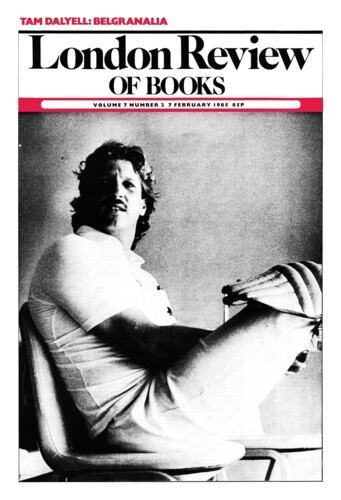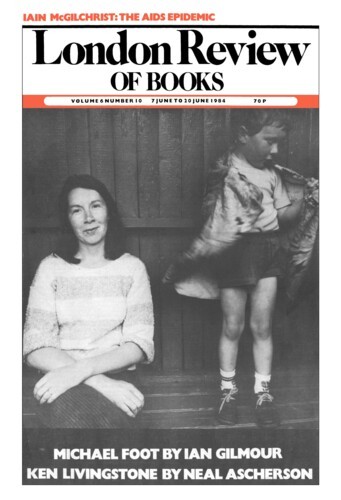Mothers
Michael Church, 18 April 1985
For his 15th Christmas, Erik Lee Preminger’s mother gave him an antique gold watch and two glass eyes set in clay, with a card which said: ‘Remember dear, Mother is always watching.’ She thought it a hysterically funny gift, but he found it strange and unsettling. The last thing he needed, on the brink of manhood, was a symbolic reminder of her domestic omnipotence. Preminger may not move on the exalted literary plane of Edmund Gosse, but the impulse behind his book is not dissimilar to that which gave rise to Father and Son. Gypsy and Me absolutely had to be written, ostensibly as a tribute to a remarkable woman, but more importantly as a way of resolving a near-mortal conflict.



